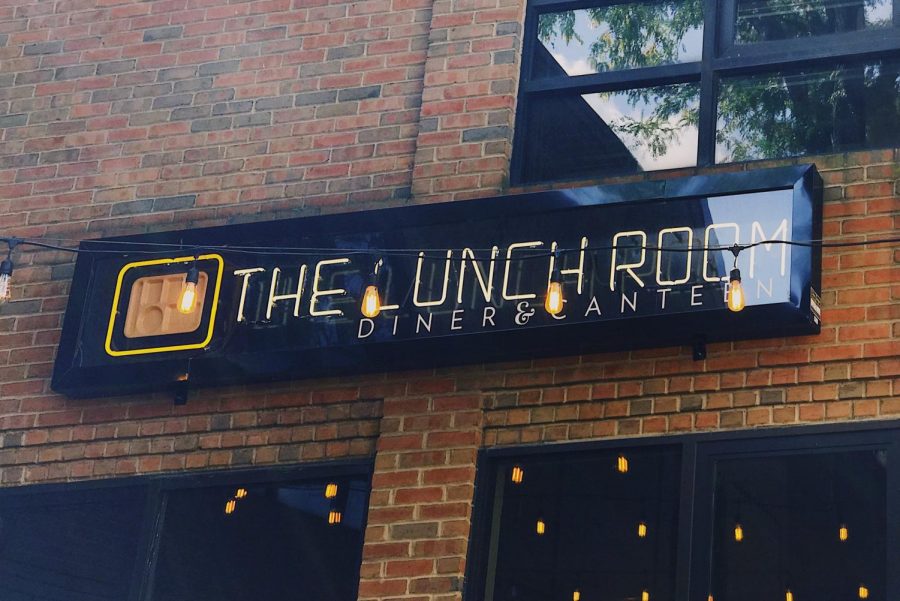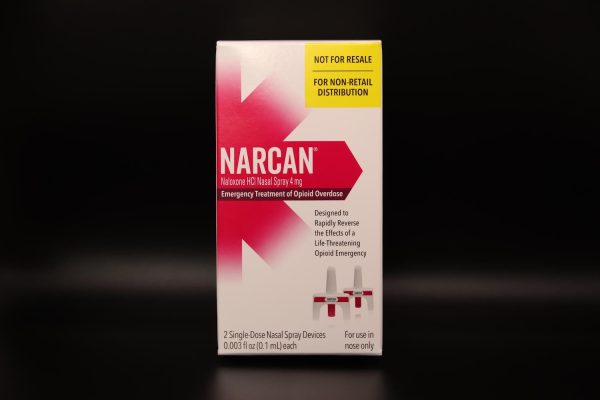Life of a small business owner during Covid-19
While most are currently sitting at home and wondering what to do with all this extra time we have been given, local restaurants and small businesses all around the world are experiencing massive financial losses and employee cuts. As the world seems to be at a standstill, the economy is plummeting at an alarming rate, making it difficult for local restaurants to remain open.
Phillis Engelbert is the current owner of three restaurants located in downtown Ann Arbor: the Detroit Street Filling Station, The Lunch Room Cafe and The Lunch Room Diner. With the economy quickly descending, and so many being forced to stay inside, her restaurant, along with many other restaurants around Ann Arbor are struggling.
Engelbert’s business began as The Lunch Room food cart back in 2011. The food cart led to the creation of two restaurants and a bakery that she currently owns today. Engelbert has provided opportunities for people recovering from drug and alcohol addiction to enter the workforce. Now in 2020, the current Covid-19 pandemic has put these store-fronts along with all of the staff in peril.
On March 11, the University of Michigan shutdown and just two days later Ann Arbor Public schools did the same. Suddenly the usually populous Ann Arbor was a ghost town: students had gone home, and businesses all over town started closing down.
Shortly after, Engelbert began noticing the effects on her own restaurants, when sales began to drop on March 15. Engelbert was forced to let four workers go from the Detroit Street Filling Station when the realization set in: the effects of the Covid-19 virus had just begun.
“I didn’t know when I could have those staff members return, and it hit me,” Engelbert said. “I saw a friendly face and broke down sobbing. The stress was palpable. I felt like I could lose my business — my baby — the entity into which I had poured every drop of blood, sweat and tears for a decade.”
The following day, Governor Gretchen Whitmer called for all restaurants to cease in-person dining and convert to only takeout and delivery. The Lunch Room Cafe and Diner were closed at 3 p.m. that day, and only carryout was to be prepared at the Detroit Filling Station.
The business is cutting costs as much as possible, to remain open. Engelbert is using the inventory at the Lunch Room just a block away to reduce how much the Detroit Filling Station needs to order. More than 13 of Engelbert’s employees have lost their insurance. Engelbert is currently working full time without pay.
Through this extremely tough time, Engelbert is trying to remain positive and considerate, as she knows how it is such a hard time for so many around her.
“I do physical and emotional wellness checks with the staff,” Engelbert said. “I praise them and support them. I try to joke around and dance with them and generally try to keep their spirits high.”
Engelbert and her staff are following guidelines set by Governor Whitmer; all workers must begin their shift by washing their hands, getting their temperatures checked, and holding their breath for ten seconds (to see if they have a cough). In addition to these measures, Engelbert and the rest of her staff have made an effort to remain as far away from each other as possible.
“There is a fear that we are not doing enough; that we could sicken the public or that our staff members could get exposed to someone with the virus,” said Englebert.
With these tough times, many people have been generous and donated a substantial amount of money to local restaurants. In addition to these donations, the Detroit Filling Station has received more than $20,000 in gift card purchases.
These donations and gift card purchases have allowed Engelbert to provide more than $7,000 worth of free meals to the homeless and she has given almost $7,500 in aid to employees.
“This give-away program is all good,” Engelbert said. “People get the food they need and we get appreciation and donations. It keeps us relevant and shows our humanity. It is the most important thing we are doing during this period.”
People respond differently in times of crisis. Engelbert has been doing all she can to help her staff but sometimes it gets to be too much.
“There is a particular kitchen manager — let’s call him R. R.” Engelbert said. “He returned to work at the Detroit Filling Station on April 5 after missing two weeks. After two and half years sober, R.R. relapsed. He the majority of a week injecting a host of terrible things into his veins. He ended up at the hospital, overdosed. They put him back together and he went right back and did more drugs.”
A few of his friends and housemates found him, they brought him home, removed his phone and car keys and then confiscated all the drugs in his car. His friends watched him for 5 days, and then he went back to work.
“Everyone was crying,” Englebert said. “It was like a death in the family. R.R. is that important to our team.” Currently R.R. is not working at the Detroit Filling Station.
Besides R.R., there have been two other relapses at the Detroit Filling Station. In one case, a valuable worker had been working forty hours a week.
“He gave his all, always with a kind word and a smile on his face,” Engelbert said. “We are all waiting, watching, hoping for his return so we can shower him with love and support and help him get through this period. Treatment centers are not accepting patients these days. It is all up to him… and us,” she said.
The supply chain continues to negatively impact both local food producers and restaurants. The produce caterer for the Detroit Filling Station, Frog Holler, has reduced its team and gone from six to five days of operating. Michigan Soy Products, which is the tofu supplier, has shut down because of supply shortage. One nearby market sold one of their two delivery vehicles — the one they used to deliver to restaurants
Most businesses have applied for financial loans because of large financial declines. However the government is being overwhelmed. As of March 17, the Small business Administration $350 billion Paycheck Protection Program(PPP) has run out of money and it is currently closed. Congress could increase the amount according to the high demand. Thousands of businesses including the Detroit Filling Station did not receive aid and they await funding.
“I wonder about how it will all come back to life, and if it will all come back to life,” Engelbert said.

Ben Cooper is a senior and this is his third year on the Communicator staff. Other than writing and editing articles, Ben enjoys playing basketball, participating in Mock Trial as well as spending time with his two dogs. He is looking forward to writing all sorts of stories this year, in addition to learning and improving his writing as much as possible.

Josh Boland is a senior and in his second year on the Communicator staff. Josh has a great interest in photography which he devotes lots of time to doing. He also enjoys playing soccer, watching sports with friends, and traveling. Josh is hoping to attend a college with great student media opportunities and good athletic programs which he can photograph.














